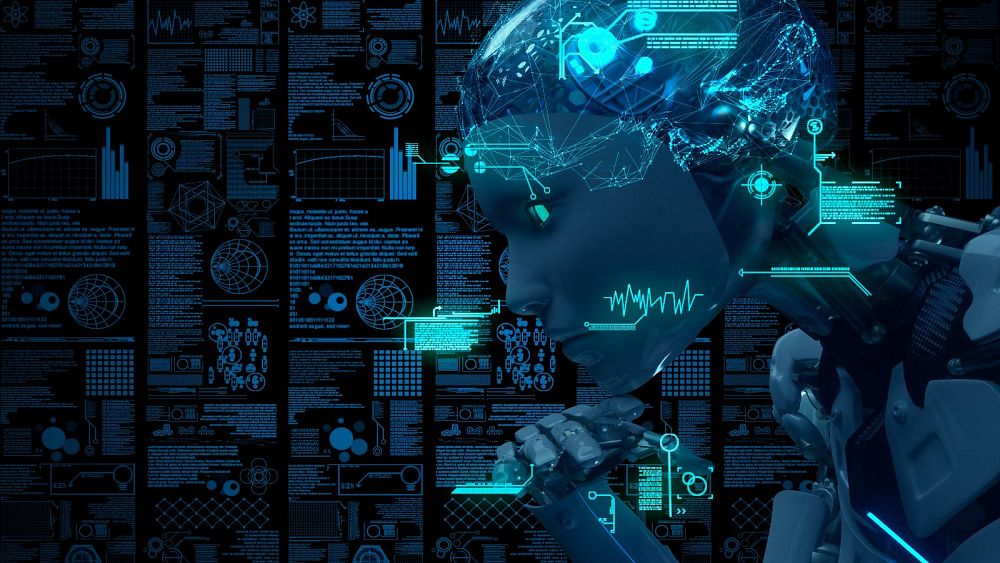How AI can save you time: 5 skills you no longer need to learn


Over the past few months, developments in artificial intelligence (AI) have taken huge strides and its use has skyrocketed, especially after the launch of OpenAI’s ChatGPT.
However, while it might be reasonable to start preparing for a world ruled by AI, more often than not results might be exaggerated and AI capacities overhyped.
People are scared of an uncertain future where they risk losing their jobs, stability, and value in society as their skills are getting more easily automatable. However, AI will always need human collaboration, and sometimes intervention, to function properly.
“We don’t want to be completely over-reliant on AIs in the future, because what happens if the next virus is not the coronavirus but a massive computer virus that basically renders all our computers and destroys or locks all our computer systems?” Bernard Marr, a futurist and internationally best-selling author, told Euronews Next.
- Sam Altman says ‘potentially scary’ AI is on the horizon. This is what keeps AI experts up at night
Skills you can skip learning thanks to AI
This being said, while AI is not expected to fully mimic humans’ abilities, it is becoming good at performing repetitive basic, or robotic tasks.
This can save time and offer people space to explore the use of special human capabilities, such as creativity and imagination.
“People often get scared when you think about all the capabilities that AI now have. So what does it mean for my job as someone that writes, for example, will this mean that in the future tools like ChatGPT will write all our articles? And the answer is no. But what it will do is it will augment our jobs,” Marr added.
Here are five skills that you can now skip learning thanks to recent developments in the field of AI.
1. Writing
AI’s natural language generation technology can be used to produce simple reports, news articles, and other content.
As AI language capabilities advance, it will augment human jobs in writing by summarizing information, making suggestions, and brainstorming ideas.
Workers are already using chatbots like ChatGPT to write content relevant to their job, such as human resources teams with job descriptions.
Some people are even making extra money by using AI to write and sell different kinds of books and content on Amazon, according to Reuters.
2. Art Design
AI-powered tools can reduce manual design work by assisting with tasks such as generating images, designing layouts, and optimising colour schemes.
Although some argue that using AI to create art is not artistic, there are pioneers using AI to develop their style and craft.
For instance, a photographer on Instagram who gained thousands of followers with stunning portraits admitted that they were actually created by AI software, Midjourney, and touched up in Photoshop.
3. Data entry
“Data entry and processing are likely to be automated in five to 10 years. Machine learning algorithms can input data faster and more accurately than humans,” Imane Adel, executive vice president of strategy at Paymob, told Forbes.
Thanks to machine learning algorithms such as Optical character recognition (OCR) technology, AI can now recognise and convert printed or written text into digital data, reducing manual errors and saving valuable time.
4. Data analysis
AI can analyse vast amounts of data quickly, identifying patterns and insights that humans may misinterpret or miss entirely, which arguably leads to better decision-making.
“Nowadays, we have an AI that can simply look through our data, analyse it, detect patterns, and do some of the analysis for us. And with all of this it can therefore do basic financial accounting tasks,” Marr told Euronews Next.
5. Video editing
AI-powered editing tools can assist people with no experience in editing by automatically selecting and assembling the best shots, adding transitions, and adjusting audio levels.
It can also assist with tasks such as image retouching, video stabilisation, and colour correction. AI tools can also generate previews, making it easier for users to visualise their final product.
- Robots could do 39% of domestic chores within 10 years, AI experts say. But it’s not all good news
The future of work in the age of AI
Thanks to its ability to easily automate repetitive tasks, AI might be the solution to years of people being subjected to a system that pushes them into killing their creativity to focus on performing basic dull tasks.
“Hopefully in the long run, it [AI] can be a good thing because if you look at lots of jobs, we waste so much of our amazing human potential doing stuff that is not really adding a huge amount of value,” Marr said.
“If we can give this to the machines and focus our time on the things that really add value as humans in terms of creativity, in terms of critical thinking, and so on, then that can only make the world a better place”.
According to Marr, the relationship between AI and humans should be rather collaborative and resembles that of pilots and automated airplanes.
While a plane can fly on its own using its auto-pilot mode, a pilot is always needed onboard in case of emergencies.
Human pilots can offer innovative and creative resolutions powered by problem-solving thinking, which many robots are very far from achieving, and this applies to all parts of life vulnerable to automation.
Consequently, in the age of AI, skills that would actually matter are those that make us humans. From creativity to critical thinking, soft skills are expected to take the lead in becoming the most valuable and in-demand skills in the market.
Over the past few months, developments in artificial intelligence (AI) have taken huge strides and its use has skyrocketed, especially after the launch of OpenAI’s ChatGPT. However, while it might be reasonable to start preparing for a world ruled by AI, more often than not results might be exaggerated and AI capacities overhyped. People are…
